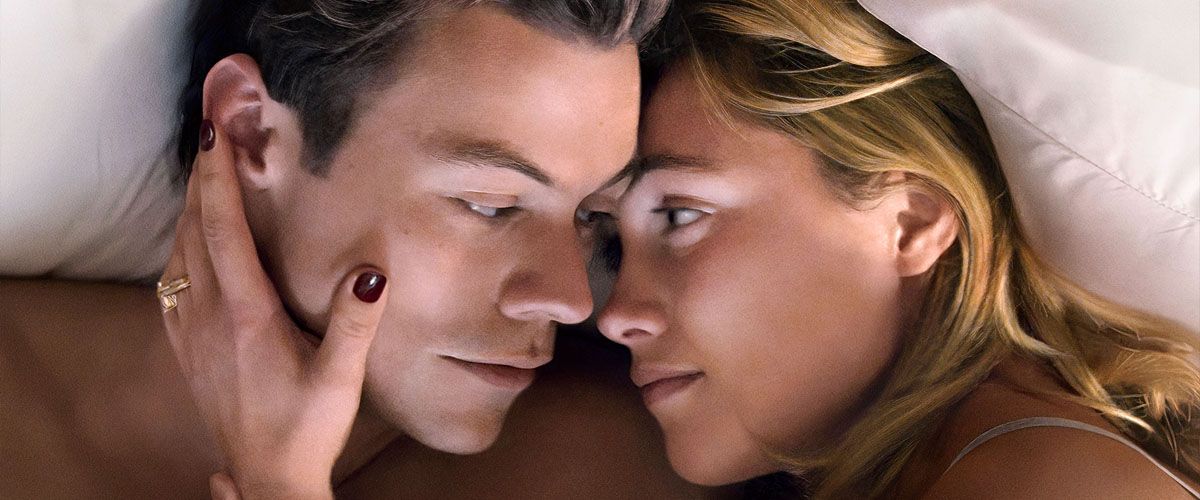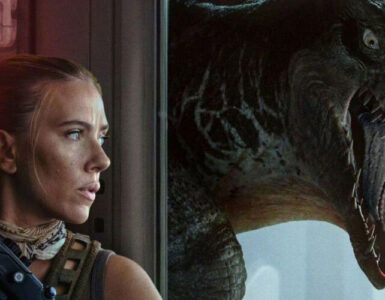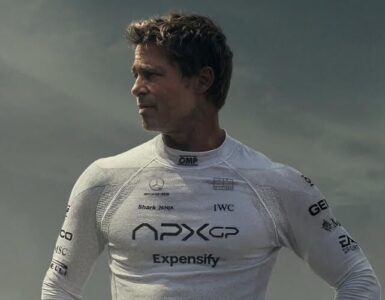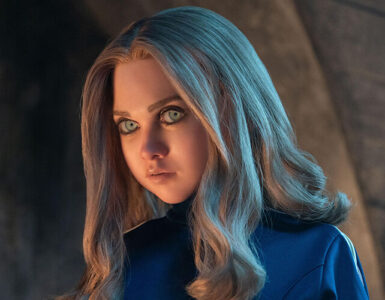- Shares
- 88
Are you ready for the life you deserve? Or rather the review Olivia Wilde’s Don’t Worry Darling deserves?
It’s easy to not want to mix real and reel life, but this movie is swimming in a mix of both. Leading up to the movie’s release, the film was bogged down by controversy filled with burned bridges, cheating relationships, as well as spitting and surprise kisses at the Venice Film Festival, all of which is the complete opposite of the cookie-cut, perfectly wonderful life in Victory, where most of the drama and thrill takes place in this thriller.
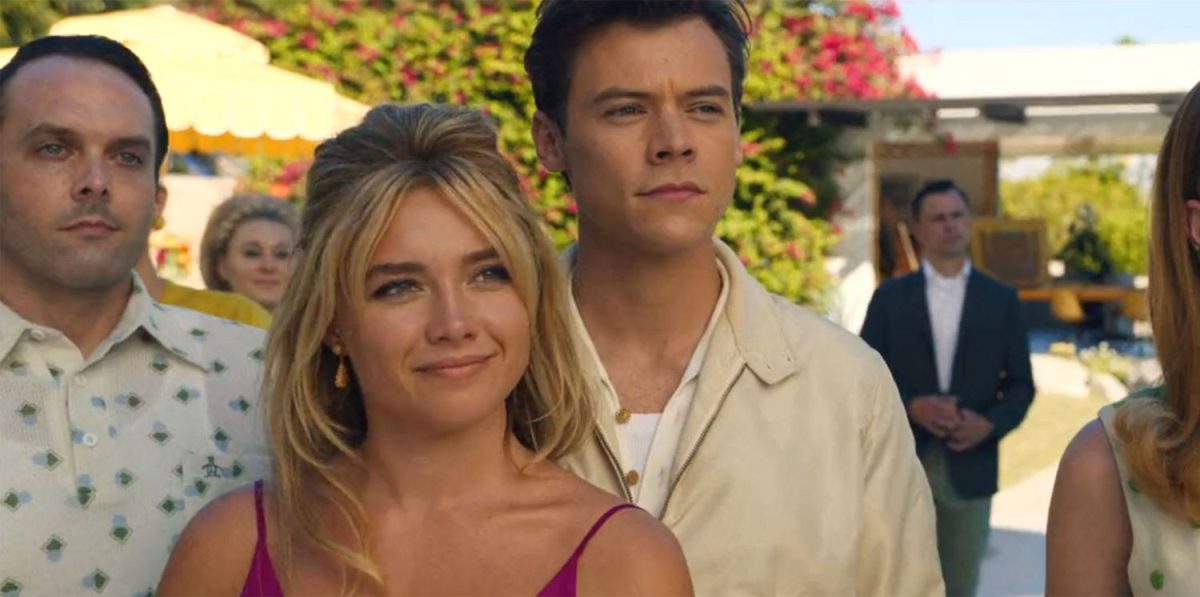
“There is beauty in control. There is grace in symmetry. We move as one.” This is the mantra of Victory, an experimental company town in the mid-20th Century, where men drive off into the desert to work on a top-secret project involving the development of progressive materials, while their wives clean the house, go shopping with friends and prepare dinner. Led by Florence Pugh (Black Widow) as Alice and singer Harry Styles as Jack, everything seems like a dream in this 1950s fantasy, until Alice begins questioning her reality.
Don’t Worry Darling starts off strong, and actress turned director Wilde builds a 50s styled American fantasy where women are second-class citizens to their ever-so-important husbands, dressed to the nines in bright hues of blues, reds, yellows and greens. Our female characters are dressed in beautiful dresses with poofy skirts, and the men are in stylish suits with slicked-back hair. People drink, get merry, and have orgasms on dinner tables and bosses’ bedrooms, and everything goes on. And on. And on. Until something strange occurs to one of the residents, Margaret (Kiki Layne) and the fantasy starts peeling back on its own.
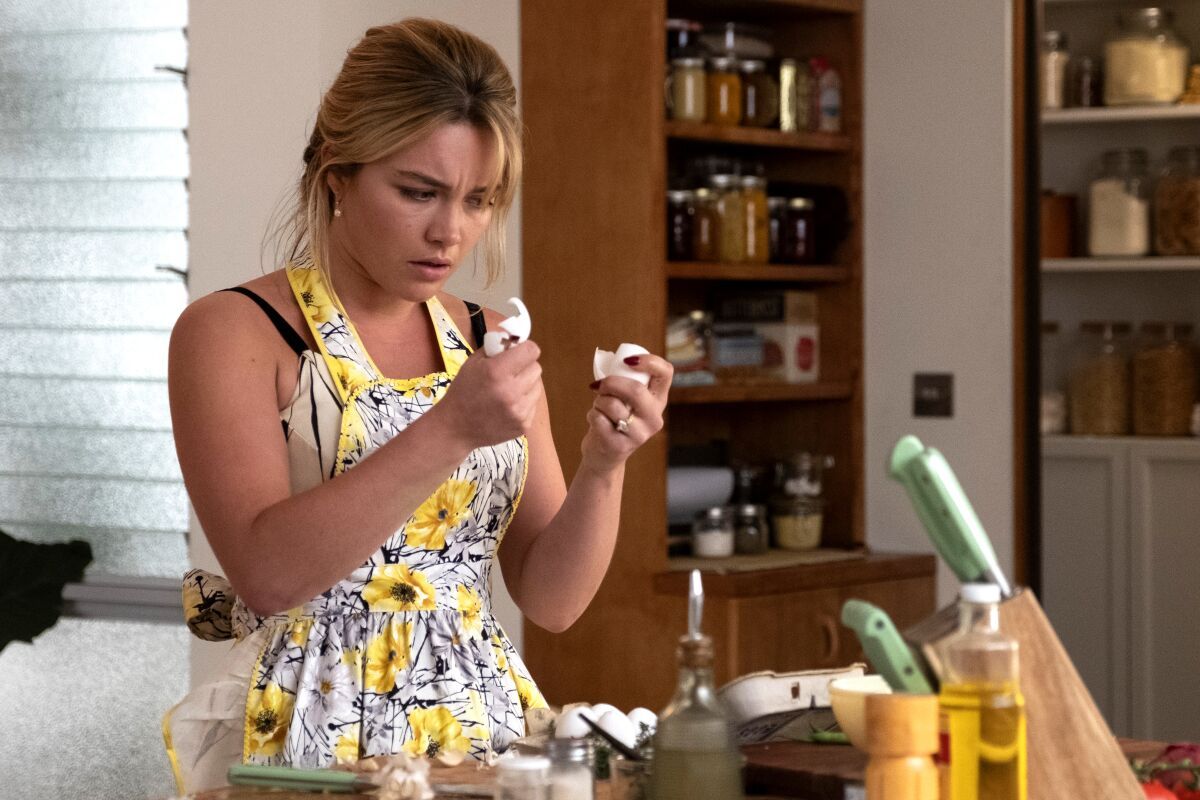
Cooking, cleaning, shopping and drinking start to seem mundane to Alice and she starts wondering what it is that her beloved husband Jack does for a living, and why all the men in her neighbourhood fawn over their boss Frank (Chris Pine). The more Alice digs, the more gaslighting she faces from Frank, resident doctor Doctor Dean Collins (Timothy Simons) and her best friend Bunny (Wilde), until she eventually loses her mind, or rather, finds out the truth behind Victory. Alice’s investigation takes up the middle part of the film, and it is here where we see some of the film’s strongest and weakest performances.
Despite the star-studded cast, Pugh is the undisputed star of this film. She brings back her acting chops from Midsommar with wide-eyed gazes, gaping mouths and screams and cries so powerful that viewers will get uncomfortable watching them. Watching her crumble under the gaslighting she’s received, and the toxic dynamic she has with her husband, will make anyone who’s shared a similar experience wince in their seats for the patterns in speech and behaviour are all too familiar. There’s no doubt that Pugh runs the movie and is the overall pull to watch the film regardless of one’s feelings and opinion regarding the movie’s bad publicity.
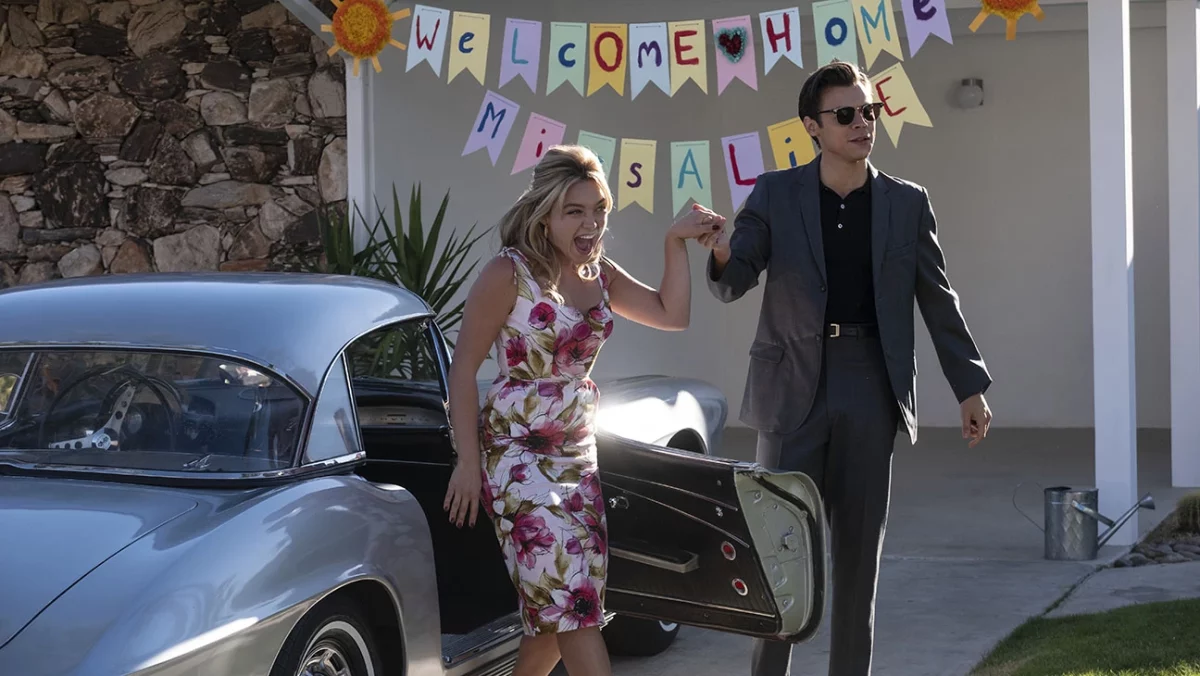
Unfortunately, this means Styles looks like a complete amateur opposite Pugh. This is the pop star’s first lead role, following a short cameo in Marvel Studios’ Eternals and a role in Dunkirk, so putting him up against Pugh, a rising star, for his big debut seems almost evil. Styles’ British accent waivers here and there and with every other actor and character in the movie sporting an American accent, Styles just seems out of place.
Perhaps the new actor can’t act in an American accent – which makes sense for him to stick to a British accent – but the 28-year-old can’t even decide on which British accent he wants to use throughout the movie. The movie also never really explained how and why a British boy named Jack gets shacked up with an American girl from Chicago either.
Plenty of elements in the movie are presented as a matter of factly, and whilst it works in some scenes, it tends to create more plot holes and questions. Of course, a little town requires a little town trolley driver too, but how did he get there? Does he know what the Victory project is? Does he have a wife too? How does Victory work for non-couples?
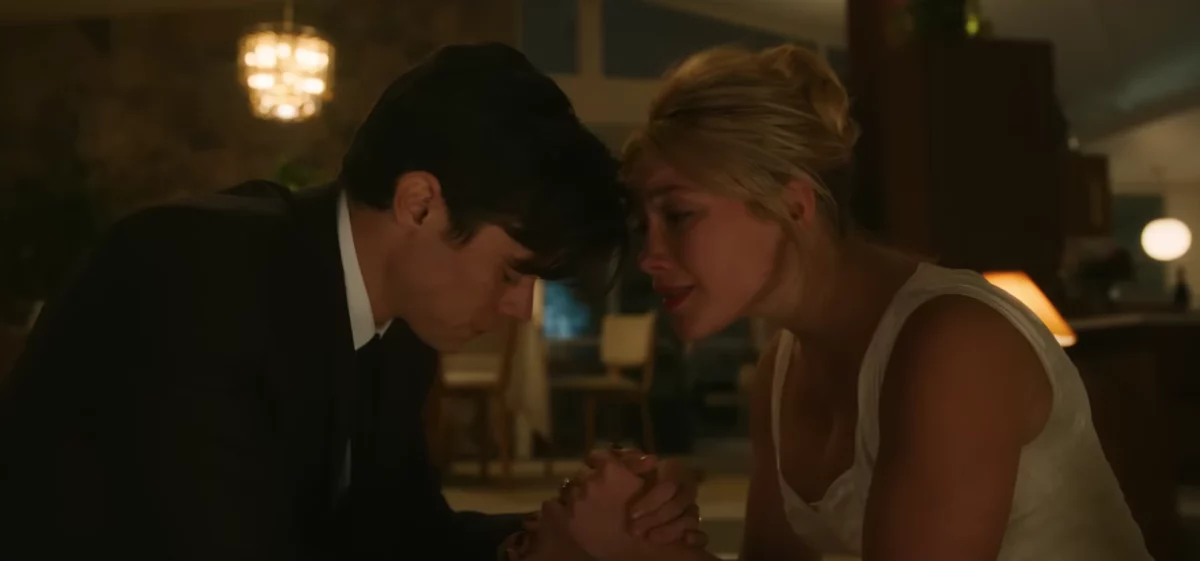
The writing in Don’t Worry Darling isn’t exactly stellar either, which brings us to the incredibly messy and rushed final act. After learning about the Victory project, the third act sees Alice attempt to find a way to escape Victory. The car-chase scenes were pretty exciting, and the twist with her best friend Bunny was definitely unforeseen and impactful, but after so much build-up, the movie’s reveal – at least visually – fell flat.
The movie ends with a black screen and viewers are left wondering – “What happened next?”. And not even in a way where we would demand a sequel, but rather because it felt so sudden and without addressing what actually happens to Victory and its residents after Alice exposes Frank. Alice’s eventual escape also felt a bit too fast and too easy, especially given the complicated predicament she had found herself in.
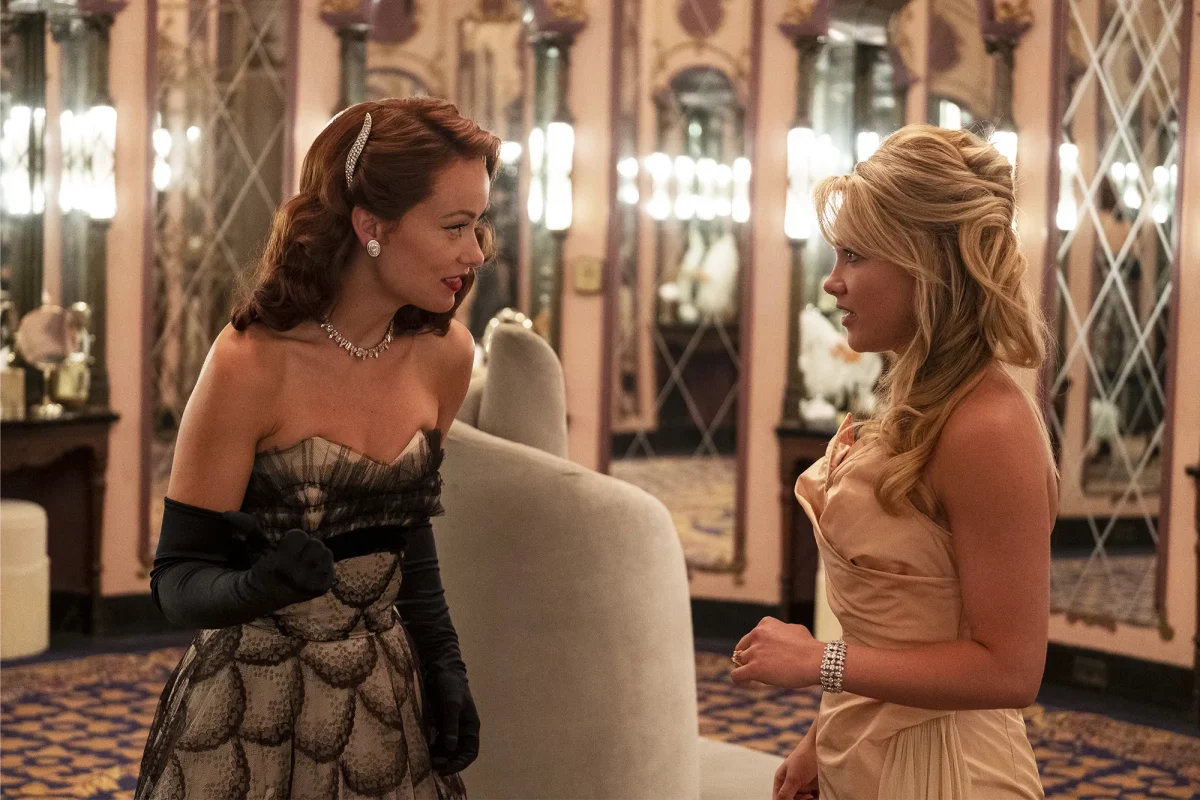
Poor writing aside though, Don’t Worry Darling is visually pretty. It is, perhaps, the most stylish thriller we’ve seen thus far. Wilde’s use of bright cotton candy colours to put up an idyllic facade for a truly evil plan is effective. The set and costumes are a 1950s dream in the sense that it leans heavily into the era’s bright-and-shiny conformity. Wilde also uses a set of repeated black-and-white visuals and patterns that are so jarring in contrast to the candy 50s fantasy that it creates just enough discomfort and curiosity. Whilst Don’t Worry Darling doesn’t live up to Wilde’s directorial debut film Booksmart, it still successfully shows her abilities in being a great director. We know that Wilde can act, and now we know that Wilde can direct too.
Don’t Worry Darling can in some way, be considered a feminist film too. It teases provocative ideas about gender roles and expectations and holds a pointy stiletto to the neck of the dated belief that women only exist to be a homemaker and make their husbands happy.
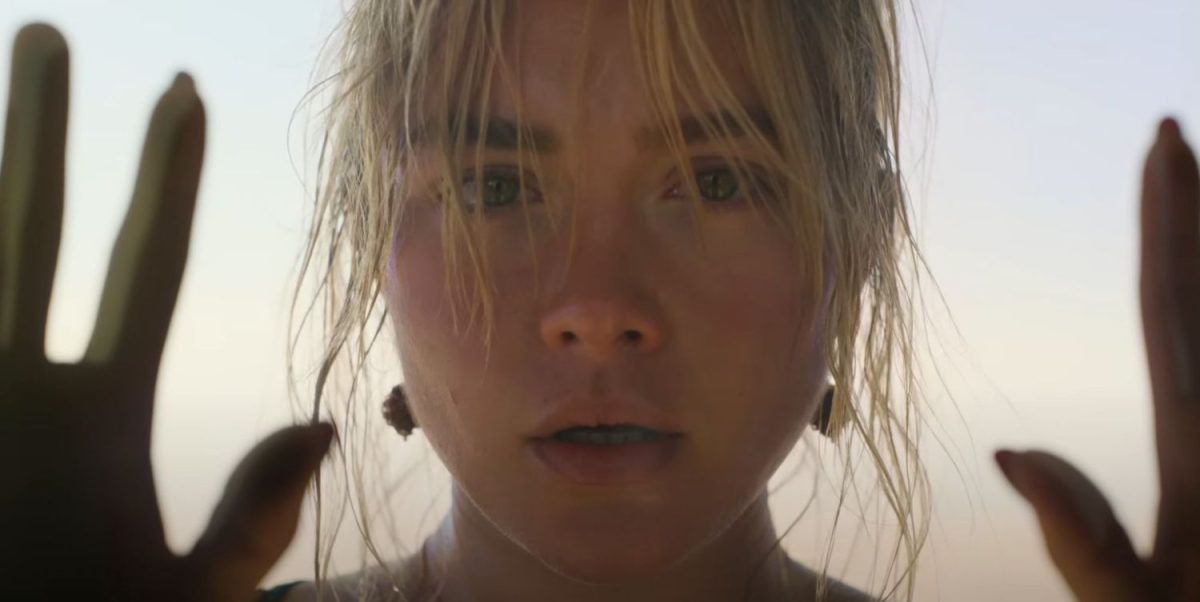
In fact, Don’t Worry Darling is a thriller and a horror to any modern woman who fears having her autonomy and free will ripped away from her and shows just how far misogynists and incels would go to gain control. Fans of The Stepford Wives, Severance and Get Out will likely enjoy Don’t Worry Darling as they are quite similar to each other in style and genre and while it may not achieve the same level of social commentary, it is still an enjoyable watch for fans who love being teased and thrilled in this way.
Sadly, real world events might overshadow the fact that the final product is a stylish thriller that lures you in with the fantasy of a perfect life, a perfect husband and a perfect wife before its big sickening reveal. It engages in feminist discourse such as gender roles, female pleasure and autonomy without being too overbearing and presents some pretty ambitious ideas that could’ve been explored better if the movie had better writing and planning. Florence Pugh flourishes in this film and is easily the main hook and draw to film – regardless of the movie’s bad publicity or not.
GEEK REVIEW SCORE
Summary
Don’t Worry Darling is a provocative thriller wrapped in a stylish cotton candy daydream. Although better writing is required to expand on the movie’s ambitious idea, Wilde proves to be a great director and that Florence Pugh, is always, a bright and shining star.
Overall
7.5/10-
Story - 7/10
7/10
-
Direction - 8/10
8/10
-
Characterisation - 7.5/10
7.5/10
-
Geek Satisfaction - 7.5/10
7.5/10

